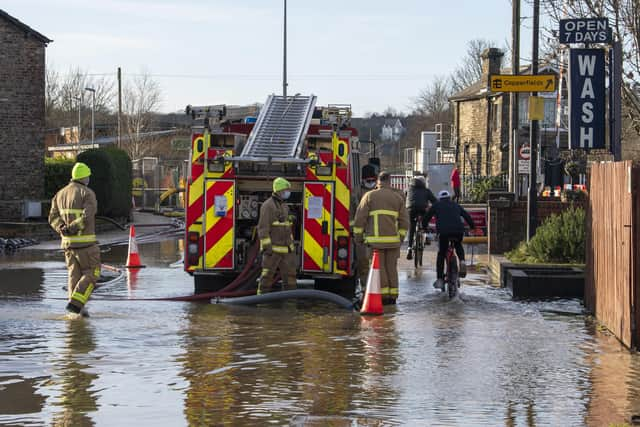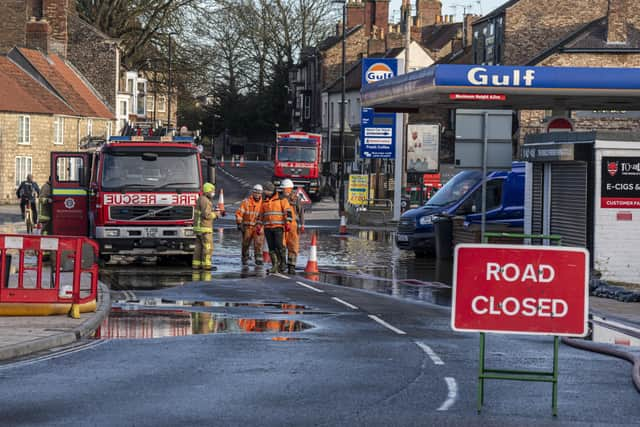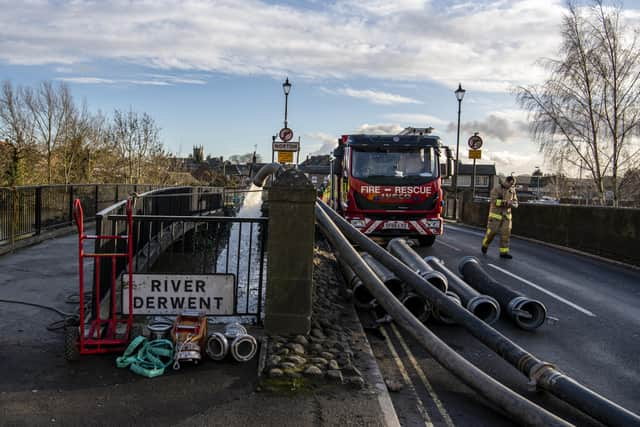Decades of neglect to blame for Yorkshire’s floods misery: Paul Andrews
The officials were adamant that failure to dredge and maintain the rivers had not caused the flooding, and the farmers were enraged because their experience, accrued over many generations, had been ignored. So what are the facts?
Flooding has always been a problem. Land drainage had been managed jointly by river boards, drainage boards and councils. Over the years much work had been done to prevent flooding. Extensive flood defences had been built in low-lying areas, and the river boards employed “lengthmen” to maintain riverbanks, remove water-weed and dredge river channels.
Advertisement
Hide AdAdvertisement
Hide AdAll three bodies were democratically and locally accountable. Then central government decided to nationalise the river boards. After a series of reorganisations, the maintenance of main rivers is now the responsibility of the Environment Agency.


The Environment Agency is a government quango which has no local accountability, and is therefore free to formulate its own nationwide policies. In 2000, a report was produced by a former river board surveyor. He found that the rivers had not been maintained for 15 years – i.e. not since 1985. The Environment Agency justified this on the basis of environmental policies on biodiversity and habitat conservation.
However, over the last two decades, flooding has got worse, and the Environment Agency was tasked with doing something about it. Instead of revising its policies and restoring regular river maintenance, its immediate reaction was to produce “flood management plans” and early warning systems. In other words, flooding was to be managed, but not prevented.
As part of flood management, the idea was even mooted that rivers should be allowed “to return to their natural floodplain” and some flood defences taken down to achieve this. To make matters worse, the Environment Agency applied a cost/benefit formula based on population density which prioritised towns over country areas and South over North. Add to this the British obsession with perfection, and it is surprising that anything ever gets done.
Advertisement
Hide AdAdvertisement
Hide AdSo, for example, a flood prevention scheme was planned for Pickering, but the cost/benefit test came in just before contracts could be prepared. So the scheme was abandoned and the money spent on planning it wasted. Later, a much less expensive scheme was prepared. This featured a detention barrier to hold water back upstream temporarily during extreme weather.


The work planned would have done the job, but then it was discovered that the Reservoirs Act applied, and the scheme had to be redesigned – which almost doubled the cost.
I firmly believe central government policies have been more responsible for flooding than climate change or intensified farming.
Climate change is a challenge which has to be addressed. So we need to prepare for more extreme weather which will increase the risk of flooding. This means regular maintenance of main rivers, repairing and strengthening existing flood defences, and building new defences.
Advertisement
Hide AdAdvertisement
Hide AdIn recent years policies have changed and there have been improvements. Ryedale, for example, has been fortunate in getting new flood defences for its towns. Recently the Government has committed £4bn over five years on flood defences nationally, to include both nature-based and hard defences. However, there is a long way to go to remedy 35 years of neglect.


Biodiversity and habitat conservation are important, but they should not prejudice the defence of homes and land – it is possible to undertake dredging without causing lasting harm to wildlife.
The Environment Agency should have offices which are locally accountable. The cost/benefit formula should be redesigned to take into account the importance of agriculture. As it is, the nation’s farms are able to produce only 60 per cent of the food the nation needs.
With Brexit, we may become more dependent on British-produced food than ever before. We cannot afford to sacrifice good agricultural land upstream of cities to save cities from flooding. The aim should be to prevent flooding everywhere.
Advertisement
Hide AdAdvertisement
Hide AdPaul Andrews is an Independent councillor for Malton on Ryedale Council.
Support The Yorkshire Post and become a subscriber today. Your subscription will help us to continue to bring quality news to the people of Yorkshire. In return, you’ll see fewer ads on site, get free access to our app and receive exclusive members-only offers. Click here to subscribe.
Comment Guidelines
National World encourages reader discussion on our stories. User feedback, insights and back-and-forth exchanges add a rich layer of context to reporting. Please review our Community Guidelines before commenting.